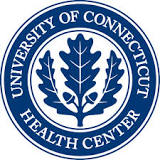Exercise or Relaxation for Smoking Cessation
| Status: | Completed |
|---|---|
| Conditions: | Smoking Cessation, Tobacco Consumers |
| Therapuetic Areas: | Pulmonary / Respiratory Diseases |
| Healthy: | No |
| Age Range: | 45 - Any |
| Updated: | 11/2/2017 |
| Start Date: | March 2009 |
| End Date: | August 29, 2017 |
Exercise for Smoking Cessation in Postmenopausal Women
This research study is being done to find out if adding a moderate exercise program or a
relaxation program to a smoking cessation treatment program will improve smoking cessation
and health in postmenopausal women. We hope to learn which group is more successful at
quitting, has less symptoms of withdrawal from smoking and has improved health.
relaxation program to a smoking cessation treatment program will improve smoking cessation
and health in postmenopausal women. We hope to learn which group is more successful at
quitting, has less symptoms of withdrawal from smoking and has improved health.
Prevalence of smoking among women has declined more slowly in women than among men. Women who
quit smoking substantially reduce the risk of premature death. A multi-modal approach to
smoking cessation with combined behavioral and pharmacological interventions generally yields
the highest success rates. The majority of subjects who are able to achieve abstinence return
to smoking. Smoking relapse rates are 50-80% within one year with the majority of smokers
relapsing within the first 3 months. Interventions are needed to both enhance smoking
cessation rates and prevent relapse rates in order to substantially impact long-term quit
rates.We intend to compare the effectiveness of a smoking cessation program combined with a
moderate exercise program to an identical smoking cessation program combined with a
relaxation-meditation control condition.
In a substudy, we will also evaluate the effectiveness of the intervention in premenopausal
women (N=40)
quit smoking substantially reduce the risk of premature death. A multi-modal approach to
smoking cessation with combined behavioral and pharmacological interventions generally yields
the highest success rates. The majority of subjects who are able to achieve abstinence return
to smoking. Smoking relapse rates are 50-80% within one year with the majority of smokers
relapsing within the first 3 months. Interventions are needed to both enhance smoking
cessation rates and prevent relapse rates in order to substantially impact long-term quit
rates.We intend to compare the effectiveness of a smoking cessation program combined with a
moderate exercise program to an identical smoking cessation program combined with a
relaxation-meditation control condition.
In a substudy, we will also evaluate the effectiveness of the intervention in premenopausal
women (N=40)
Inclusion Criteria:
- Postmenopausal women at least 45 years of age
- Smoking at least 10 cigarettes per day
- Motivated to quit smoking
- Ambulatory
- Currently exercising for 90 minutes of moderate exercise or less per week
- Motivated to exercise
- Permission from Primary Care Provider
- Good general health
Exclusion Criteria:
- Denied medical clearance from primary care provider
- Unstable angina or uncompensated heart failure
- Systolic blood pressure greater than 165 or diastolic blood pressure greater than 100
- Heart attack or stroke within the preceding 6 months
- Hip fracture within the preceding 6 months
- Unstable medical or psychiatric disorder (e.g., current major depressive disorder or
substance abuse or dependence)
- Exercise-exacerbated neuromuscular disorder
- Treatment for depression within the last year
- Estimated creatinine clearance of less than 30cc/minute
- Current use of a smoking cessation aid (i.e., bupropion, NRT, clonidine)
- Current use of psychotropic medication for a psychiatric problem
- Prescription narcotic abuse or dependence with the exception of people that have been
stabilized on Methadone Maintenance or Suboxone
- Previous serious adverse event with Chantix use
We found this trial at
2
sites
Univ of Minnesota With a flagship campus in the heart of the Twin Cities, and...
Click here to add this to my saved trials
263 Farmington Ave
Farmington, Connecticut 06030
Farmington, Connecticut 06030
(860) 679-2000

University of Connecticut Health Center UConn Health is a vibrant, integrated academic medical center that...
Click here to add this to my saved trials
